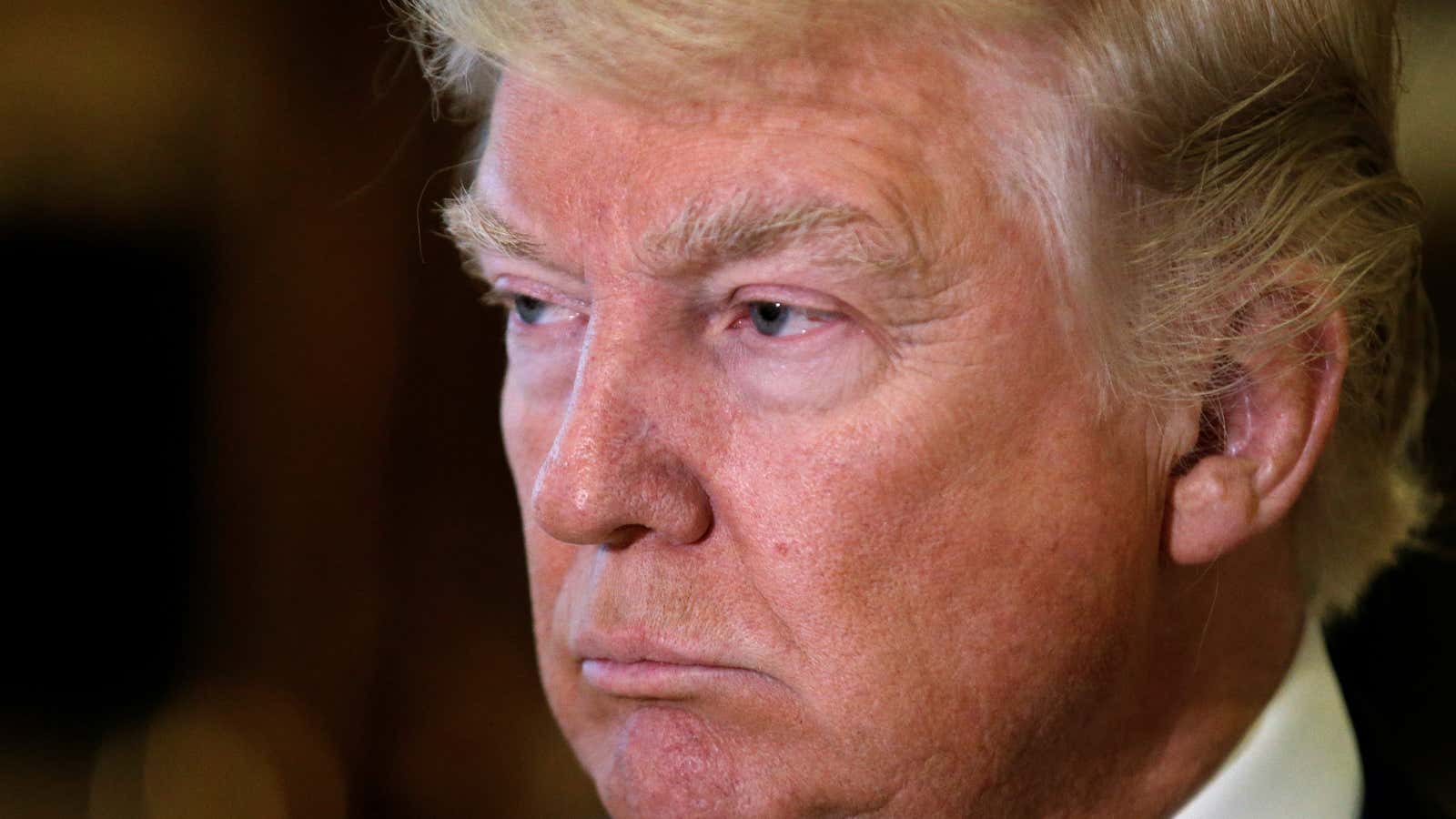US president-elect Donald Trump called Meryl Streep “overrated” and a “flunky” today, after the actress used her platform at Sunday night’s Golden Globes awards to criticize his imitation of a disabled reporter. The exchange set off an increasingly familiar cycle of nasty social media attacks, hot takes, and finger-pointing over “Why Trump won” that threatens to define the early stage of his presidency.
The attack on Streep also handily diverted attention from the US Senate’s confirmation hearings for Trump’s cabinet picks. These hearings begin tomorrow (Jan. 10), despite the fact that, bucking decades of tradition, some of the nominees have not completed basic disclosures of potential conflicts and financial holdings, much less described how they would resolve them.
As the US Office of Government Ethics warned in a letter made public over the weekend to senators Elizabeth Warren and Chuck Schumer, several Trump nominees scheduled for confirmation hearings that start this week have not even submitted their “initial draft financial disclosure reports.” That is traditionally the very first step in a labor-intensive process that normally takes weeks, not days, to complete, the OGE said. “In the past, the ethics work was fully completed prior to the announcement of nominees in the overwhelming majority of cases,” director Walter M. Shaub wrote.
Normally before a nominee’s Senate hearing, the office crafts an ethics agreement letter that the nominee signs, detailing what the specific investments, business interests, and conflicts are—and how exactly the nominee will resolve them, from selling stocks to resigning from boards or special interest group.
Education secretary nominee Betsy DeVoe’s hearing on Jan. 11 seems particularly light on details, according to her preliminary confirmation report for the Senate committee obtained by Politico. In the section devoted to financial conflicts of interest and how she might resolve them (pg. 21), the billionaire who has spent millions to push charter schools said only that she plans to consult with the ethics office in the future.
In a joint column for the Guardian, the chief White House ethics lawyers under the George W. Bush and Barack Obama administrations laid out the danger of proceeding, both for the US government and the nominees themselves—who could face criminal charges if they violate laws on conflicts of interest:
Short-changing the ethics review process in Congress jeopardizes nominees’ ability to do their jobs if confirmed. The Senate, and all of us, need to know if nominees will, for example, sell investments that create conflicts. If not, will they recuse themselves from certain issues? Will they have so many recusals that they cannot reasonably perform their duties, or will they be running the constant risk of violating the anti-conflicts laws? Those bear criminal penalties, so the danger is a serious one.
Senate majority leader Mitch McConnell said Monday that “Everyone will be properly vetted, as they have been in the past,” but no changes to the hearing schedule have been announced. Schumer used the opportunity to remind McConnell of his own demands that Obama’s nominees be properly vetted eight years ago.
